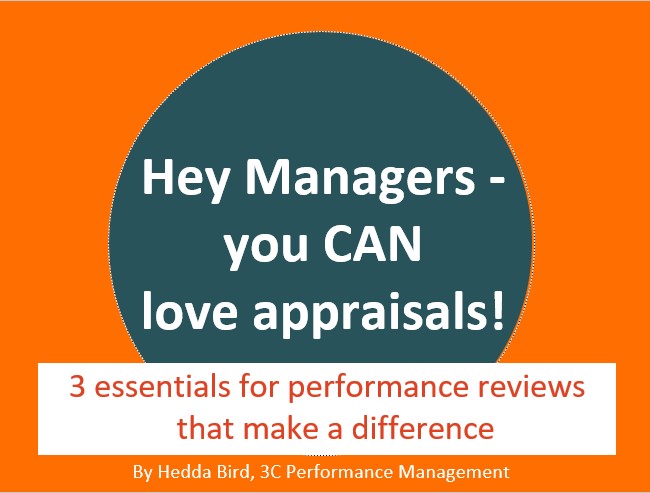Preparing for Performance Conversations
3 Quick Wins for Managers
Every manager knows they should prepare for performance reviews or appraisals. But those dull tick box forms don’t really cut it in terms of giving the manager confidence, do they?
In our experience, even when managers have paid attention to the form filling and have thought carefully about their responses, they still frequently find the conversations wander off track, seem inconclusive, or just feel like a waste of time.
After studying this for some time, it has become apparent that by filling in the form, managers have to put their attention on the past and, even if they are thinking about the future, their focus is normally only on how to set the right SMART objectives.
Here’s a better way…
STEP 1 – THE SINGLE MESSAGE
When someone walks out of their performance review, and a colleague asks ‘how did that go?’, what do you want them to think or feel (even if they don’t say it)?
Do you want the individual to think: ‘I must pull my socks up’ or ‘I’m more valued than I realised’ or ‘there are a lot of possibilities for me here’?
Most of us only remember one thing after a meeting. So what is it you want them to remember?
Write that message down. Write down one or two things you can say that will communicate the message. Plan to say these things at least once at the beginning and once at the end of the conversation.
STEP 2 – KEY ISSUE TO EXPLORE
Thinking over the next period – what would you like this person to do? It might be a minor improvement to their attention to detail, or it might be to get involved in a major new project. You are the manager – so firstly, think about what it is that your team needs to achieve, and how can this person contribute towards that.
Then develop at least three questions to explore what that contribution might look like in practice. If you want to focus on their development, then create some questions to open up this area. Write the questions down.
STEP 3 – SAY WHAT MUST BE SAID
This is obvious if there is a problem to deal with, but it also really matters if the individual is doing well. Specific praise, highlighting what is going well and why, generates higher motivation AND higher performance (now they know what to do more of).
This matters at EVERY level from the C-suite down. To make sure you are specific, no matter what the topic, use a model like AIM to prepare what must be said.
A = ACTION – ‘I saw/heard/observed you…’
I = IMPACT – ‘The impact that had on the team/others/customers was…’
M = MOVING FORWARD – ‘Please do more/less/change/stop…’
Write down what you need to say.
You may not use these exact words in a conversation, but you now have a clear plan for the meeting.
Enjoy!
For more details on our Open Programmes and In-House Training Workshops for Managers and Employees – click here




